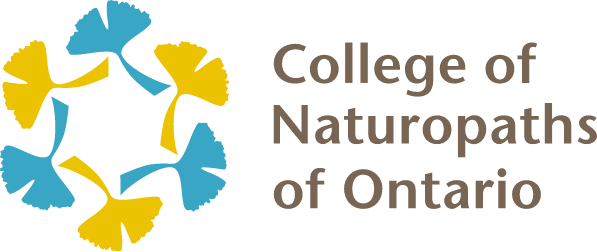
Taking care of mental health
Posted On: July 22, 2021
It has now been a year since our lives shifted significantly with the COVID-19 pandemic. As we continue to navigate the third wave and adapt to new preventative measures, it’s important to prioritise mental health awareness and care as much as physical health.
If a patient discloses abuse, self-harm, or suicidal thoughts, be prepared to stop your assessment or treatment and address these comments. You need to maintain confidentiality of capable patients unless there is a significant risk of harm. In those particular situations, your duty to warn (keep others safe) may supersede your need to obtain consent.
As a naturopath, it’s important to notice the red flags, to be able to readily offer information about resources and support, and to refer to the appropriate professional.
Crisis lines are excellent resources to call to seek guidance on how best to proceed if you are concerned about a patient. It is important to document the relevant information and actions taken in the clinical record, including only the critical details. Make sure to stay within your scope of practice as a health care professional by responding to concerning comments, asking a few probing questions, and then deciding on your course of action. Depending on the scenario, the course of action might be to offer resource information, or to contact a family member or physician, or even to call 911 in extreme cases.
Don’t ignore concerning comments. Be human, be empathetic, and indicate your concern. For example: “That sounds very stressful, and I’m really concerned about you.” You may be the only health professional that the patient feels comfortable enough with to disclose this information to. How you respond might open doors for the patient to seek supportive services. SPRING 2021 INFORME D 10 The College of Naturopaths of Ontario.
Ask your patient some probing questions to get more information about the degree of danger present. In an abusive scenario, you could ask if there are children witnessing the abuse, or whether there are guns in the home. If you are in the middle of a hands-on technique when a patient makes a disclosure that causes you concern, be aware of how touch can be impactful and be careful of the effect on your patient if you suddenly take your hands off them after the disclosure.
Capable adults have the right to make their own choices, even if that means remaining in an abusive relationship. Offer your patient available resources for support services if they are open to it. Involve your patient in your action plan whenever possible to foster trust. For example, say “I’m really concerned about your safety, I’m going to get the number for the suicide hotline and we’ll call them together for some advice.” Suggest to your patient that you’d like to create a team to support them. Explain that in addition to yourself you think it would be beneficial for them to connect with their school counsellor, physician, social worker or psychologist to ensure that all of their needs are addressed by the right professional with the right skills.
Follow-up with patients who stop therapy mid-session, leave, and cancel sessions. Naturopathy can provide great value for people who may not feel valued themselves and might need an open-door reminder.
It’s important to keep in mind that many people are feeling extremely isolated and due to the current preventative measures in place, a patient’s health professional may be one of the few people they are interacting with.
During these unprecedented times many people are experiencing an increase in stress and anxiety. This does not just include patients, but health care professionals are just as vulnerable to the same mental health hardships as any other person. They are experiencing the same fears, questions of the unknown, stressors of health and finance and an overload in COVID related information. In addition to supporting your patients, it’s important that you also take care of yourself.
Resources
The following resources are just a few of those available to anyone who may need some support in these challenging times, including naturopaths, students, patients, caregivers, kids, staff and other health providers.
CAMH
CAMH provides access to mental health and addiction supports for health care workers impacted by the COVID-19 pandemic. This includes access to resources, psychotherapy, and psychiatric services.
Wellness Together
Canada Wellness Together Canada was funded by the Government of Canada in response to the unprecedented rise in mental distress due to the COVID-19 pandemic. It provides mental health and substance use support, resources, and counselling with a mental health professional. This service is accessible 24/7 and is free for everyone.
The Canadian Psychological Association
The Canadian Psychological Association is offering psychological services to frontline health care workers free of charge.
ConnexOntario
ConnexOntario provides free and confidential health services information for people experiencing problems with alcohol and drugs, mental illness, or gambling by connecting them with services in their area.
211 Ontario
211 Ontario can help you find support during COVID-19 and is your primary source of information on government and community-based social services. Things are changing quickly during this unusual time, but they are committed to providing accurate and up-to-date information to Ontarians about responses to the novel coronavirus.
Kids Help Phone
Children and youth under 18 can locate mental health services through the Ontario.ca and Kids Help Phone websites, or contact Kids Help Phone (1-800- 668-6868) for 24/7 support, if they need someone to talk to.
BounceBack
A free skill-building program managed by the Canadian Mental Health Association (CMHA). It is designed to help adults and youth 15+ manage low mood, mild to moderate depression and anxiety, stress or worry.
Togetherall
An online, peer-to-peer support community for anxiety, depression, and other common mental health issues.
Mental Health Commission of Canada
Includes a resources and tools section for Health Care workers.
Ministry of Health and Mental Health and Addictions Centre of Excellence of Ontario
The Ministry of Health and the Mental Health and Addictions Centre of Excellence of Ontario have partnered with five hospitals to provide confidential support to frontline health and community care workers.
The Royal Ottawa Mental Health Centre, Ottawa
Waypoint Centre for Mental Health Care, Penetanguishene
Centre for Addictions and Mental Health (CAMH), Toronto
Ontario Shores Centre for Mental Health Sciences, Whitby
St. Joseph’s Healthcare, Hamilton
